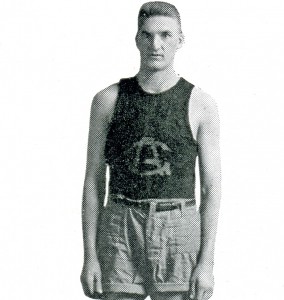On June 22, 1944, the Servicemens’ Readjustment Act of 1944 was signed into law by President Franklin Delano Roosevelt. More commonly known as the “GI Bill of Rights,” or simply the “G.I. Bill,” this grass-roots bill provided ten key rights”for returning WWII veterans (known as G.I.s):
1. Readjustment allowances
2. Home, farm and business loans
3. Review of discharges
4. Adequate health care
5. Prompt settlement of disability claims
6. Mustering-out pay (though this was removed from the original bill and enacted separately)
7. Effective veteran employment services
8. Concentration of all veterans’ functions in the Veterans Administration (VA)
9. Vocational on-the-job training
10. Educational opportunity
The bill changed millions of lives and gave returning veterans a chance to succeed after their time fighting in the battlefields overseas was over. The G.I. bill not only affected those from our community who served, but a local man was actually involved in the creation of the G.I. Bill.

C. Fred “Fritz” Hanson was a 1920 Gustavus graduate and a WWI veteran. He enrolled at Gustavus in 1915, but left to fight in WWI, where he was the recipient of a Purple Heart. As a marine serving in France, he began thinking that it was “unjust that some recruits received education benefits others were deprived of. Why not give them a chance at an education when they returned home?” (Hanson, quoted in a Sept. 14, 1948, Gustavian Weekly article).
As a member of the Alexandria Legion Post #87 and serving as a department commander for the Minnesota American Legion, he proposed his ideas for educating veterans at the Alexandria Legion, and as support for a Veterans bill grew, his draft moved through the ranks until it was part of the bill approved by Legionnaires at a national convention.
During his time at Gustavus (as fractured as it was) he was a captain of the baseball, basketball and football teams as well as a member of the tennis team. After his graduation from Gustavus he received his LL.B. from the University of Minnesota and practiced law in St. Paul and in Alexandria until his retirement in 1974.
He passed away in 1975 in Alexandria. He was inducted into the Gustavus Athletics Hall of Fame in 1980. As we celebrate 68 years since Roosevelt signed the G.I. Bill into law, we remember a Gustavus graduate who was instrumental in its passage.